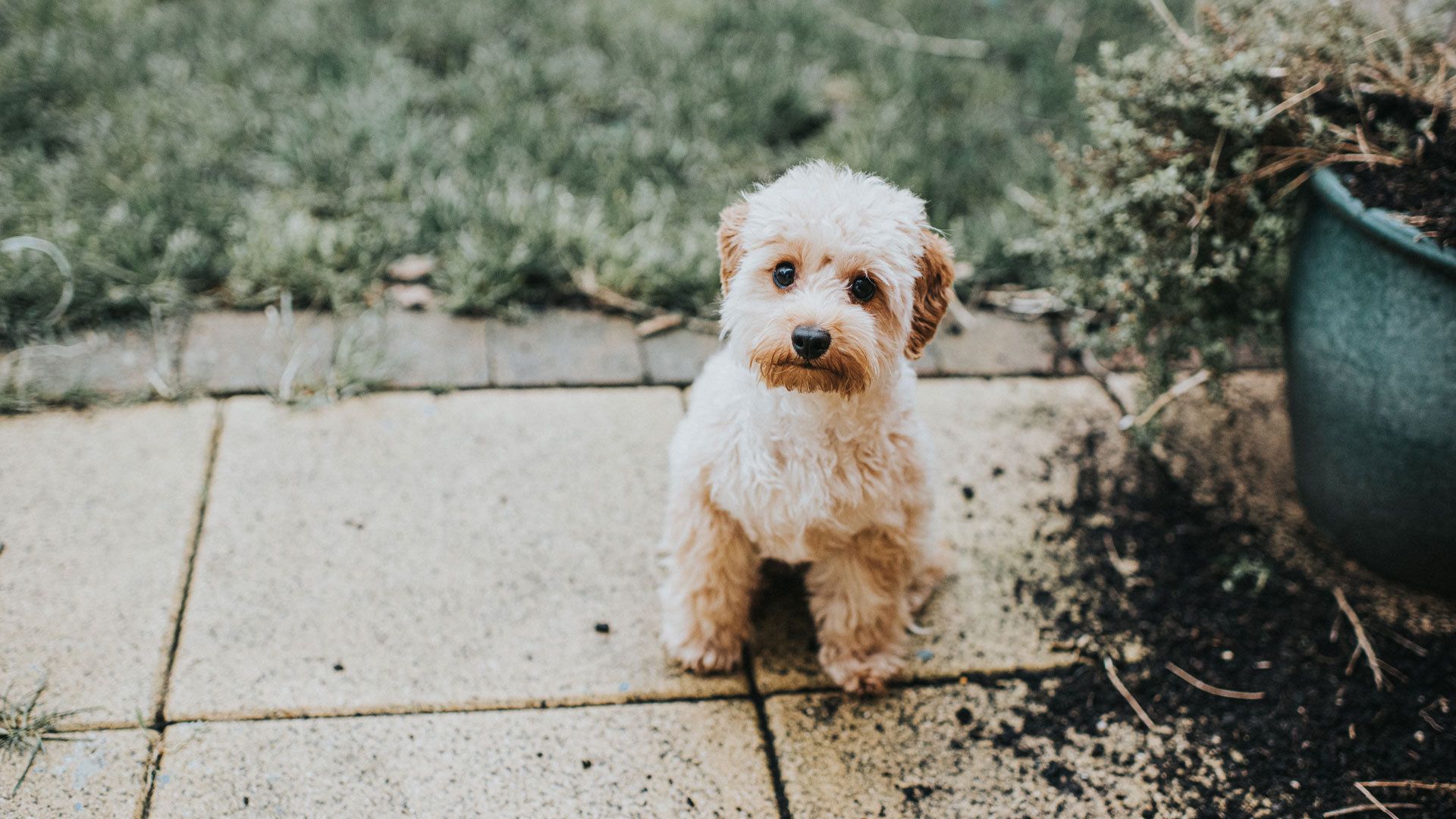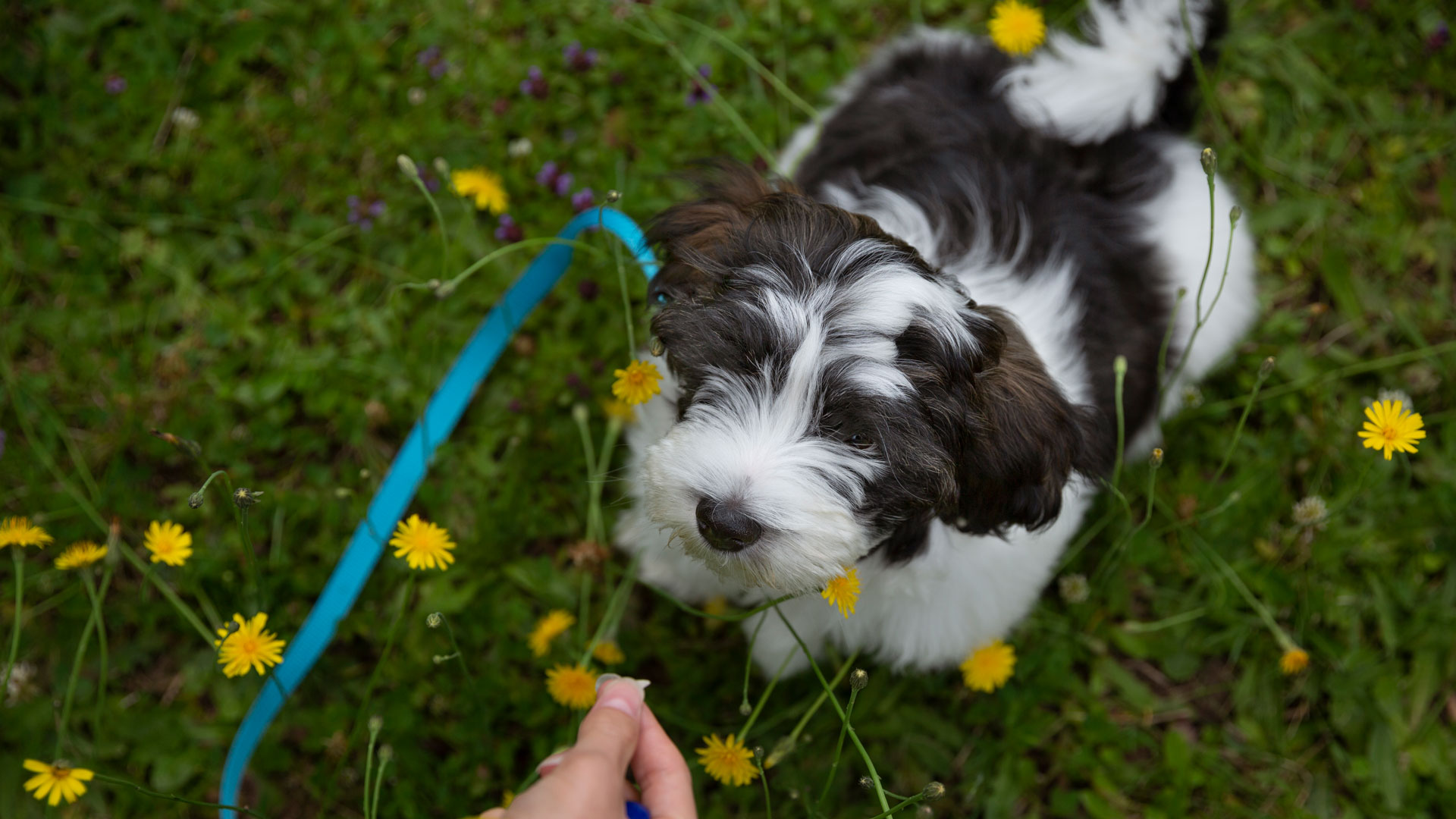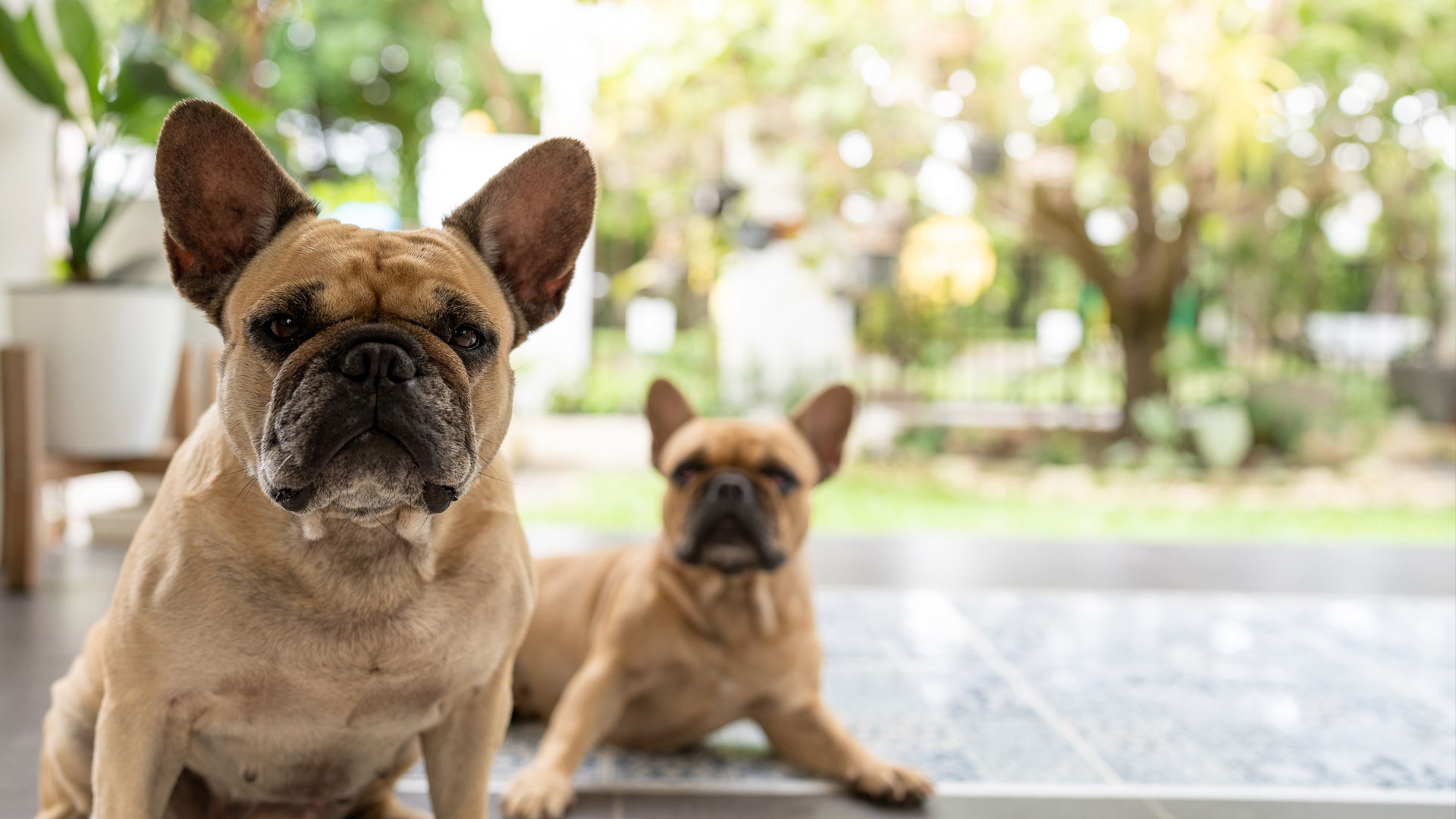How long does it take to potty train a dog?
We asked a veterinary nurse; how long does it take to potty train a dog?

Get the best advice, tips and top tech for your beloved Pets
You are now subscribed
Your newsletter sign-up was successful
Is there a simple answer to how long it will take to potty train my dog?
House training is a stage of puppyhood most pet parents would like to conquer as quickly as possible; however, how long it takes to potty train your dog is a bit of a roll of the dice. Multiple factors are involved, all of which are variables. Therefore, results and time frames cannot be pinned down to a specific age or length of time. Puppy compliance, discipline, consistency, breed, diet, and health are all contributing elements that can – and do – alter the timeline before your new pet is a fully trained house dog. Thankfully, there are well-documented guidelines that most growing puppies fall into, making the process easier and more relatable.
From the get-go, a routine around how to potty train a puppy is a must, this includes all members of the household being on the same page helping to remove confusion and stress which will help aid a smooth transition into a house-trained dog.
Here, we ask qualified veterinary nurse, Annaliese Morgan everything you need to know about potty training timelines.

Annaliese qualified as a veterinary nurse from Edinburgh and went on to attain a diploma in advanced veterinary nursing in surgery from London. Annaliese worked in both small and mixed veterinary practices and gained head nurse status. She has looked after 1,000s of patients and co-authored multiple books.
How long does it take to house train a puppy?
It would be ideal to be able to state a particular age your puppy will have his or her toileting habits cracked, but it is impossible to give anything other than age ranges.
Factors such as the breed or size of your puppy (as an adult) contribute because the smaller the dog is, the smaller its bladder is and the less it can hold. The same holds true for the digestive system. The diet you feed your puppy also plays a part in the digestive system determining how much and how often they will defecate. The better the quality of the food, the less waste there is for them to pass. A further point to mention is if a dry diet (kibble) is fed they will drink more than if a wet diet (canned meat or raw food) is fed, due to kibble biscuits containing around 60% less moisture when compared to wet food.
If the house or environment where your pet resides is chaotic and stressful with not much of a routine, this raises the chances of the training process being lengthened. Look out for signs of anxiety in dogs as an anxious or stressed dog can urinate or empty its bowels when it’s triggered. Take a look at your dog’s environment and what they are surrounded by. Are they comfortable, happy, and secure?
Get the best advice, tips and top tech for your beloved Pets
Depending on the puppy, your training plan, diet, and the environment it can take weeks or months before solid house training is completed. Each pet is different as is each owner and habitat. It takes consistency and repetition to train a puppy’s brain, urinary and digestive systems to all cooperate with each other and learn to hold their urine and feces until a suitable time… usually, this is outside or in a designated toileting area.

What age should a puppy be potty trained?
It is generally agreed by most veterinarians and experts, such as food specialists Purina, that puppies should be able to hold their bladder for six hours by the age of four-six months, which does at least mean they can make it through the night without waking you and reduces the number of surprises for you to find by the time they are six months old!
The American Kennel Club do stress the importance of ‘patience and persistence’ with the potty training process as every puppy and situation is different, and as The Royal Society of the Prevention of Cruelty to Animals (as recommended by the British Veterinary Association) states, ‘a dog’s bladder does not have full capacity until 12 months old’.
It’s acceptable if one or two accidents continue to occur up until this age and I have found in my own experience a backward step can often be encountered (particularly around the five to six-month mark) whereby your puppy is fully potty trained or is so 90% of the time, only to start toileting again in the house. This usually rectifies itself swiftly if the same training steps are taken as before and you don’t react to the situation.
The caveat here is to be certain that it is a backward step and solely a bump on the potty training road. Have your veterinarian check over your puppy if this situation transpires, urinary tract infections can occur increasing the frequency of urination and by default, mishaps in the house.

Can you speed up the potty training process?
Forcing, impatience, and punishing tactics will never help in achieving the desired result and this stage is mostly about letting your puppy reach full control in their own time. The following points can help reduce unnecessary problems and maintain an optimum timeline.
- Understand smaller dogs and breeds have smaller urinary and digestive systems and need to relieve themselves more frequently.
- Feed the best quality diet you can. Poor-quality food means more waste and more poop! Check out the best puppy food for more on this.
- Create a proper feeding schedule. Puppies have smaller digestive systems that aren’t fully developed. Avoid overloading their systems with infrequent and larger meals by feeding smaller meals more often.
- Stick to the plan and the schedule you create and don’t waiver from it (unless advised to do so by a professional).
- Use positive reinforcement such as treats, cuddles, or play when your puppy goes to the toilet outside. Choose the reward your puppy loves the best.
- Never use negative reinforcement or punishment for accidents or for not complying with potty breaks.
- Try out different surfaces/areas or take your puppy (once vaccination allows) to different places… towels, pads, grass (different lengths), soil, gravel, patio, sidewalk, woodland, different parks, and so on. Bitches, as a rule of thumb, prefer to urinate on grass for example.
- Get to know your puppy. As their parent, you know them the best and will be able to notice the signs if they need to relieve themselves. Likewise, you will be able to spot if they seem off-color, not quite right or if accidents in the house are occurring. In this case, have your veterinarian check your puppy over to rule out any other underlying problems.
- The MSD Veterinary Manual has a helpful chart documenting the times puppies naturally want to relieve themselves throughout the day, this is a useful tool and guideline for you to blend your scheduling in conjunction with your puppy’s natural timings.
Looking for advice tailored to a rescue or a more mature pooch, check out our vet's guide covering how to potty train an older dog and about increased urination in dogs.
Annaliese qualified as a veterinary nurse from Edinburgh and went on to attain a diploma in advanced veterinary nursing in surgery from London. Throughout this time, she worked in both small and mixed veterinary practices and gained head nurse status. Responsible for training other veterinary nurses she also ran the nursing department, nurse clinics, and patient care protocols.
She has looked after 1,000s of patients and owners and created new higher standard nursing regimes, whilst specializing in surgery and anesthesia. After being asked to co-author multiple veterinary nursing textbooks, Annaliese continued to write for further mainstream publications in the UK and USA and after twenty-plus years in both the veterinary and pet care professions, she hung up her scrub suit and now writes full-time.
